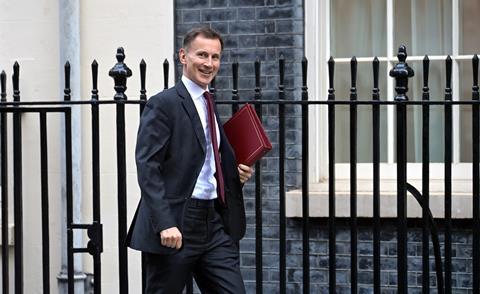The cost of mortgages have gone up further following Bank of England’s base rate rise to 5%
Mortgage rates have increased to their highest level in seven months, almost to the heights seen in the wake of last year’s mini-Budget.
The average two-year fixed residential mortgage rate has risen to 6.23%, up from 6.19% on Friday, according to Moneyfacts data.
This is the highest rate since 16 November 2022, when the market was still responding to Prime Minister Liz Truss’s economic policy announced in September.
Since the Bank of England’s decision to increase the base rate of interest by 0.5% last Thursday to 5%, share prices of major housebuilders have dropped between 1% and 4%, given concern from investors over the impact of rising rates on homebuyers.
The latest research by Capital Economics announced last week said that if mortgages are sustained at the current 6% rate longer than expected, house prices could drop by as much as 25%. It warned that the number of house sales is likely to drop by 25% this year and not recover until 2025 given the recent rise in mortgage rates to above 6%. Last week London-based developer Pocket Living also warned that housing starts in the capital could drop significantly over the next year in the face of a drop off in the demand.
Moneyfacts data shows that the average five-year fixed rate residential mortgage has now reached 5.86%, up from 5.83% on Friday, also the highest rate since November.
“These are worrying times for borrowers who have not seen average rates hit 6% since the turmoil surrounding the fiscal announcement,” a spokesperson for Moneyfacts said in a statement.
>>See also: Combined authorities to oversee Labour green belt release, says Nandy
>>See also: House sales ‘to drop 25%’ amid mortgage rate surge
Fears are being voiced over the impact of rising interest rates on the new build sector.
On Friday, the Chancellor of the Exchequer Jeremy Hunt met with a group of UK lenders representing 75% of the industry to persuade them to provide additional support to mortgage customers.

This will include support for existing borrowers struggling with payments to switch to interest-only mortgages or extend the term of their mortgages.
“There are two groups of people that we are particularly worried about. The first are people who are at real risk of losing their homes because they fall behind in their mortgage payments,” Hunt said.
“And the second are people who are having to change their mortgage because their fixed rate comes to an end, and they’re worried about the impact on their family finances of higher mortgage rates.
“These measures should offer comfort to those who are anxious about high interest rates and support for those who do get into difficulty.”
The government said the latest market indicators show that mortgage arrears and defaults remain below pre-pandemic levels.
The Financial Conduct Authority reported 0.86% of total residential mortgage balances in arrears in the first quarter of 2023, compared to the 3.32% rate in 2009.
The proportion of disposable income spent on mortgage payments is currently at 5.4%, compared to around 10% in the 1990s and prior to the financial crisis.











No comments yet